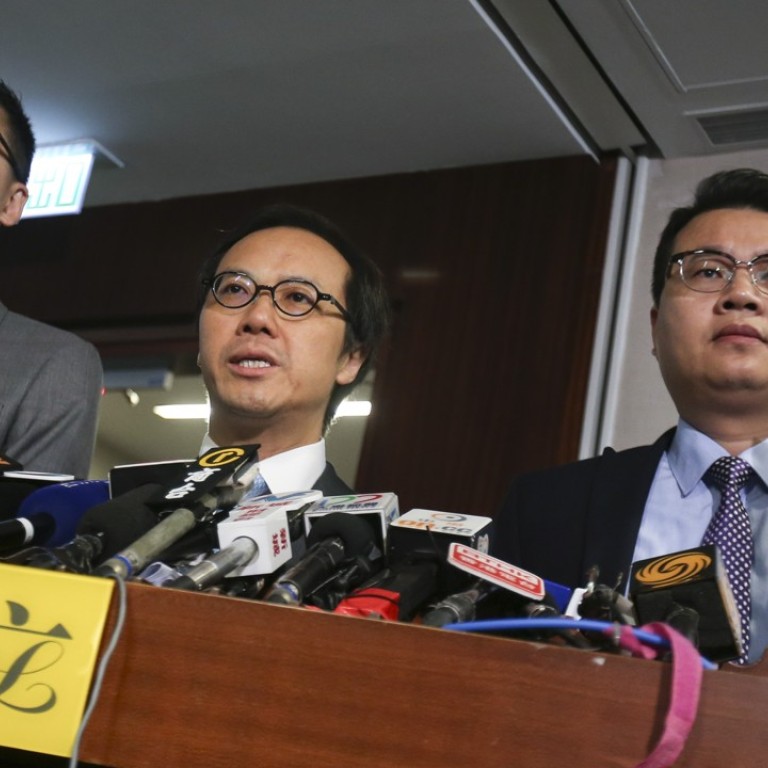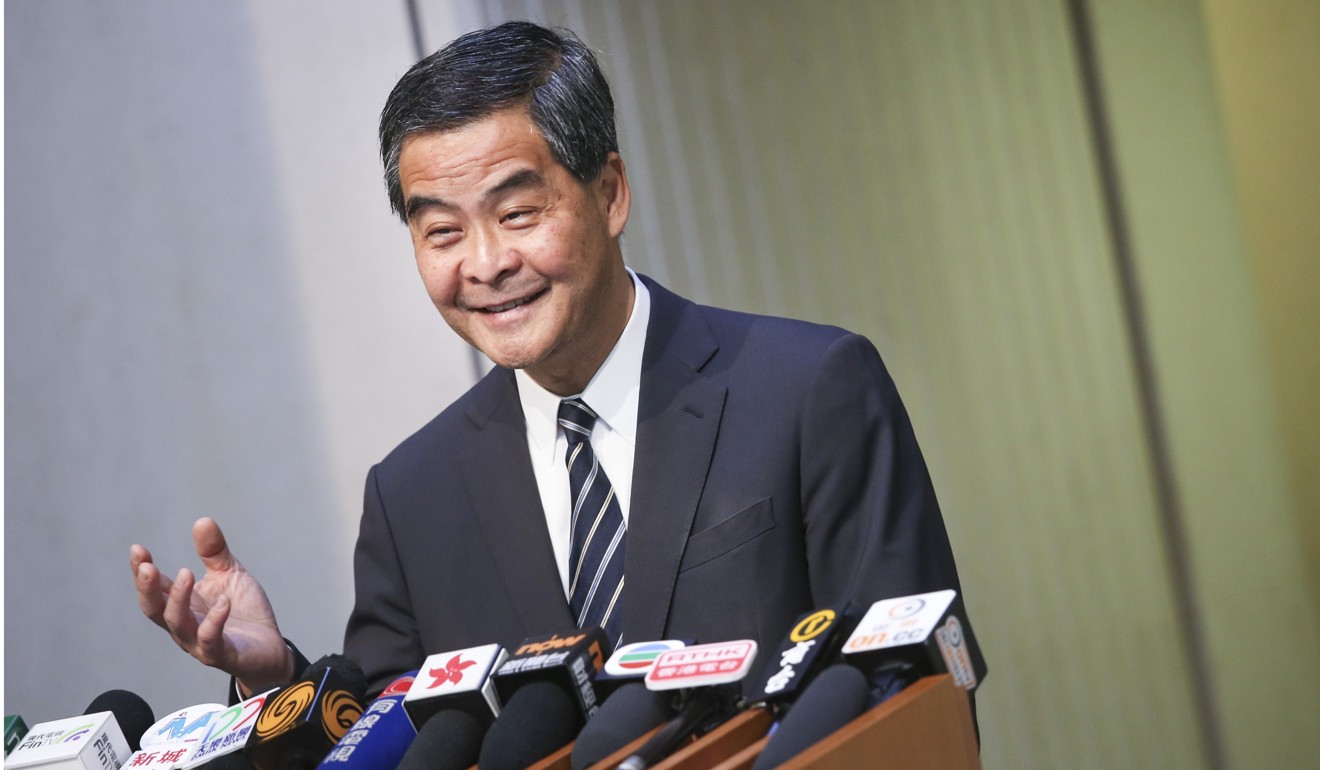
Hong Kong leader CY Leung interfered with HK$50m fee inquiry only to clear his name, critics argue
Chief executive maintains he amended document to broaden scope of the investigation by lawmakers and ensure no stone was left unturned
Pan-democrats who initiated the probe want to find out whether Leung had complied with legal requirements for the chief executive to declare interests when and after he assumed office. They also want to determine whether the agreement gave rise to any conflict of interest in his capacity as Hong Kong leader.

Pro-establishment lawmaker Holden Chow Ho-ding submitted the revisions to the committee, without revealing Leung’s involvement. But Microsoft Word showed that changes in the file were traced to the computer user name “CEO-CE” (chief executive).
Leung explained on Tuesday that he was only trying to make sure that the inquiry panel left no stone unturned.
“If the committee does not cover what it should cover, a year later people will say they have ‘let Leung Chun-ying off the hook’,” he said.
But Kevin Yam Kin-fung, convenor of the Progressive Lawyers Group, said Leung had sought to “gain all the strategic advantages” through his amendments.
“On one hand, Leung asks the committee to verify the authenticity of the UGL agreement disclosed by the media, trying to undermine its legitimacy,” Yam said. “But on the other, Leung also asks the committee to look at which clauses in the agreement remained valid after he became chief executive, treating the document as genuine.”
The two suggestions were contradictory but it showed Leung tried to exhaust all possibilities to clear his name, Yam said.
It seems to me he wants people to interpret it as ... just a golden handshake in the business world and there is no conflict of interest
Lam Cheuk-ting, a Democratic Party lawmaker on the select committee, said Leung’s additions sought to highlight his earlier defence. He cited the addition by which Leung asked the committee to examine the “original intention” of the UGL agreement.
“It seems to me he wants people to interpret it as a ‘non-compete, non-poach’ agreement as he did before – that this is just a golden handshake in the business world and there is no conflict of interest,” he said.
Lam also noted Leung had deleted the original proposal that said the committee should check whether Leung had, “during his term as the chief executive”, declared his receipt of the payment. His version would narrow down the scope and ask the committee to find out whether he declared the interests “when he assumed office”.
Another pan-democrat member, Kenneth Leung, said regardless of what the chief executive had suggested, his mere act of contacting and instructing Chow already constituted interference.
Junius Ho Kwan-yiu, a pro-establishment lawmaker on the committee, declined to comment, saying he was bound by confidentiality rules from discussing the case.

